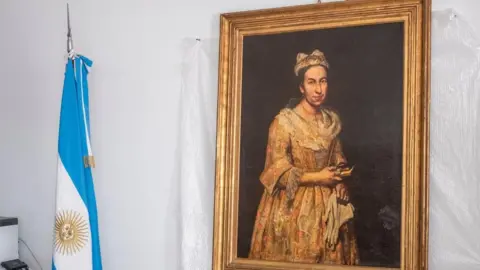Álvaro Uribe, the former president of Colombia, has been handed a 12-year sentence of house arrest following his conviction on charges of witness tampering and fraud. The 73-year-old is the first ex-leader in Colombian history to receive a criminal conviction, a momentous legal landmark for the nation.
In addition to his house arrest, Uribe has been fined $578,000 (£435,000) and barred from holding any public office. Despite the verdict, he has maintained his innocence and expressed intentions to appeal, asserting that the case is an effort to "destroy a voice for the democratic opposition."
Serving as Colombia's president from 2002 to 2010, Uribe remains a contentious figure. He has been accused of collaborating with right-wing paramilitaries to dismantle left-wing rebel groups, although he firmly denies these allegations. A small group of his supporters have gathered outside the Bogotá courthouse to voice their support.
His conviction stems from a lengthy 13-year-long witness-tampering investigation. Key testimony from two incarcerated former paramilitaries revealed that Uribe's ex-lawyer, Diego Cadena, allegedly incentivized them to provide favorable testimony for Uribe. Cadena, who is also facing charges, has refuted the claims and testified on Uribe's behalf alongside other ex-paramilitaries.
Prominent figures, such as U.S. Secretary of State Marco Rubio, have criticized the judicial process leading to Uribe's conviction, asserting that it was weaponized against him. Rubio stated on social media platform X that Uribe's only offense was his strenuous defense of his country.
The rise of paramilitary groups in Colombia within the 1980s aimed at confronting poverty and marginalization led to violent confrontations with leftist guerrillas that have historically plagued the nation. While Uribe’s hardline strategies against groups like the FARC were lauded in Washington, critics argue that he overlooked significant inequalities in Colombia.
Following a peace agreement with Uribe's successor in 2016, the lingering violence from demobilized factions remains a harrowing issue for Colombia today.




















